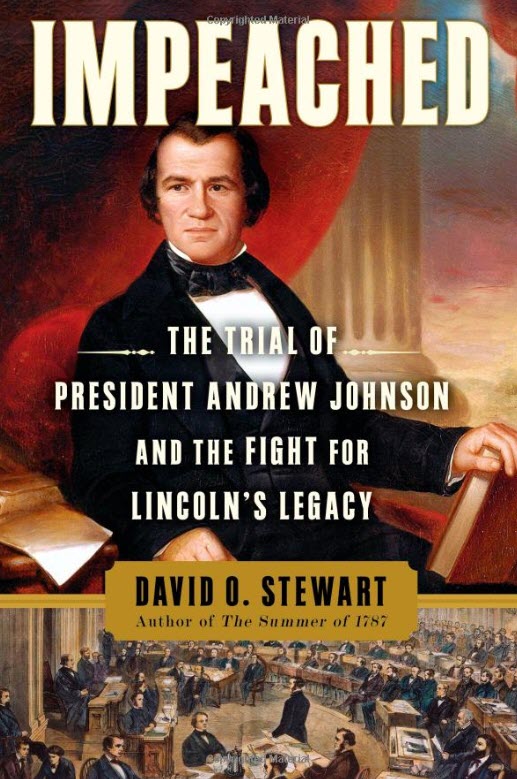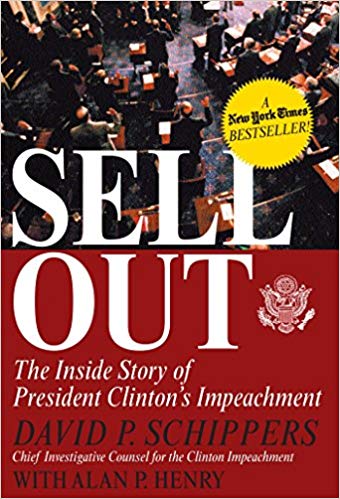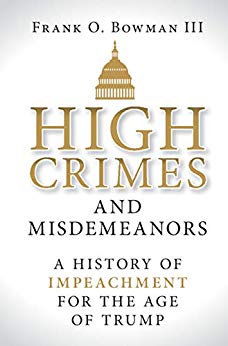Every day that passes in the Trump Presidency brings us closer to the potential for a Presidential impeachment.
The writers of the Constitution included impeachment as part of their system of checks and balances. They wanted a limited government, holding power only through the consent of the governed.
The word “impeachment” itself means that a majority of the House of Representatives feels that the President is guilty of treason, bribery, or “high crimes and misdemeanors.”
The process is long and complex and isn’t supposed to be taken lightly. In our entire history, only three Presidents have ever been impeached. None were convicted.
So who were those three, and what were their crimes?
1. Andrew Johnson

During the Civil War, Senator Johnson of Tennessee was the only Southern Senator to remain loyal to the Union. In 1864, he became Vice President under Abraham Lincoln.
When Lincoln was assassinated shortly after the war, Johnson became President. As a Southerner, his reconstruction policies that were very lenient, allowing the states that had seceded to quickly regain their full status. He allowed them to create “Black codes” that let slavery continue in everything except its name.
He also tried to remove the Secretary of War, Edwin Stanton, who had been appointed by Lincoln. Johnson considered him a radical, and tried to replace him with Ulysses S. Grant, but the Senate objected and Grant withdrew his name. The Senate quickly passed a law that the President couldn’t remove any official appointed with Senate approval.
Johnson tried to replace Stanton anyway, this time with the less popular choice of General Lorenzo Thomas. Stanton refused to leave and even barricaded himself briefly in his office.
The House voted to impeach the President for violating the law, and the trial went to the Senate. The Chief Justice of the Supreme Court presided.
In spite of the facts about his violation of the law, Johnson’s opponents failed to get the two-thirds majority needed in the Senate to convict him. He held on to the Presidency.
2. Richard M. Nixon

This is the famous Watergate case. This time the crimes and misdemeanors were brought to light by a team of Washington Post reporters.
The story started in June of 1972, when the offices of the Democratic National Committee were burglarized. The thieves turned out to be employees of the “Committee to Re-elect Nixon.”
The President insisted at that time that no one in the White House or the administration had known about the “bizarre incident.”
Over time, however, the reporters uncovered a conspiracy in which the administration dug up negative information about political enemies.
As the public about the illegal spying and burglarizing, the White House launched a complex coverup. Eventually, it became clear that Nixon himself was behind the whole operation, including the coverup.
This was when Nixon conducted the famous “Saturday Night Massacre,” ordering his Attorney General to fire the special prosecutor investigating the case. When the AG refused and resigned, Nixon ordered his Deputy AG to fire the special prosecutor. The Deputy also refused and resigned. Finally, Nixon got the Solicitor General to do the dirty work, and the prosecutor, Archibald Cox, was fired at last.
Several articles of impeachment were brought by the House Judiciary Committee for “high crimes and misdemeanors,” including obstruction of justice, abuse of power and contempt of Congress. Because the evidence was so overwhelming, Nixon resigned, rather than facing the likelihood of being impeached by the full House and probably convicted by the Senate.
Technically, Nixon was never impeached. The process had only begun, and the House did not have time to vote on impeachment before he resigned.
3. William Jefferson Clinton

President Bill Clinton was impeached not for his sexual relationship with his intern, Monica Lewinsky, but for lying about the affair.
Over the course of about a year and a half, the President had multiple sexual encounters with Ms. Lewinsky in the White House. When the relationship came to an end, she was transferred to the Pentagon.
At the Pentagon, Ms. Lewinsky befriended a woman named Linda Tripp. She confided in Tripp, who secretly taped their conversations and then contacted the FBI.
In the meantime, Lewinsky had been subpoenaed by Paula Jones, who was suing President Clinton for sexual harassment. Having allegedly been advised by the President to do so, Lewinsky denied her relationship with Clinton.
Now the FBI put pressure on her, threatening her with prosecution if she didn’t tell the truth to the grand jury in the Jones case. Promised immunity, Ms. Lewinsky gave her truthful testimony, and a few days later, President Clinton did the same.
Clinton is the one and only sitting President to have appeared before a grand jury investigating his behavior.
The House Judiciary Committee was given evidence by Kenneth Starr, the independent counsel in the unrelated Whitewater investigation. They passed three articles of impeachment on to the full house, which voted in favor of two.
President Clinton was tried in the Senate for lying to the grand jury and obstructing justice.
He was acquitted of both, with the Senate coming nowhere near the two-thirds majority required to convict.
Will there be a fourth?

So there you have it. Two American Presidents have actually been impeached, one for violating federal law, one for lying about sex. A third would surely have been impeached and most likely convicted, for a variety of crimes and obstruction of justice.
When we look at the events of the past four months, it’s hard to believe that there won’t be an attempt to impeach Donald Trump. From lying to Congress to obstruction of justice, the path to impeachment seems clear, if complex.
Featured image by Ted via Flickr. (CC BY-SA 2.0)




